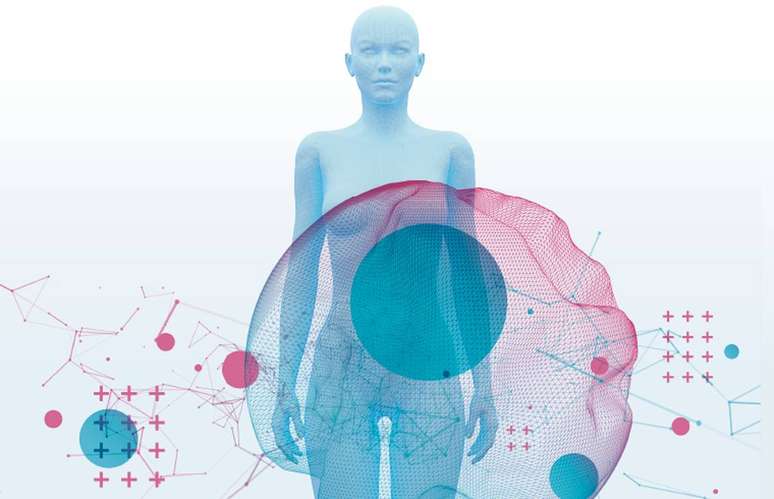With more treatments available thanks to scientific advances, cancer patients improve their quality of life
Since completing his residency in oncology in 1998, physician Paulo Hoff, president of Oncologia D’Or and professor at the Faculty of Medicine of the University of São Paulo, has witnessed a radical transformation in his area of expertise. “He changed everything,” he sums up. First came targeted therapy and, more recently, immunotherapy, along with advances in surgery and radiology.
html[data-range=”xlarge”] figure image img.img-180a9cbfec3796e4a8e4d2834677ed317h2iq6jp { width: 774px; height: 499px; }HTML[data-range=”large”] figure image img.img-180a9cbfec3796e4a8e4d2834677ed317h2iq6jp { width: 548px; height: 353px; }HTML[data-range=”small”] figure image img.img-180a9cbfec3796e4a8e4d2834677ed317h2iq6jp, html[data-range=”medium”] figure image img.img-180a9cbfec3796e4a8e4d2834677ed317h2iq6jp { width: 564px; height: 363px; }HTML[data-range=”small”] .article__image-embed, html[data-range=”medium”] .article__image-embed { width: 564px; margin: auto 0 30px; }
“Today we know that there are hundreds, perhaps thousands of different diseases lumped into the term ‘cancer,'” says Hoff. Doctors have an ever-expanding arsenal of therapies based on the molecular alteration that triggered the appearance of the tumor. “It’s the personalization of medicine.”
The main innovations in the sector are presented at the congress of the American Society of Clinical Oncology (Asco, for the acronym in English). This year, Carlos Henrique dos Anjos, an oncologist at the Sírio-Libanês hospital, was excited about a study involving the breast cancer drug Ribociclib. “The positive effects of the treatment, already known for patients with metastases, have also been demonstrated for the initial stages of the disease.”
With so many treatment options, people with cancer are living longer and better lives. “Survival has increased for all tumors, compared to ten, twenty years ago. We are advancing with more drugs and technology. And the tests will allow us to give the right drug for the right tumor, saving the patient unnecessary treatment”, celebrates oncologist Fernando Maluf, founder of the Vencer o Cancer Institute.
Precision and less trauma: the advantages of robotic surgery
Surgery is one of the pillars for the treatment of solid tumors. The most performed technique in Brazil and in the world is the open one, in which the surgeon makes a large cut in the patient. However, robotic surgery, a sort of evolution of laparoscopy, is gaining ground. In this method, the surgeon controls the arms of a machine (robot) remotely and precisely through a console.
Compared to open surgery, minimally invasive procedures reduce blood loss, leave fewer scars, speed up recovery and cause less pain, without losing effectiveness. This is a nice plus, considering that the procedure should not only remove the cancer but also minimize the trauma to the patient.
Applied in deep cavities, such as the chest and abdomen, robotic surgery also has the advantage of providing ultra HD vision, eliminating hand tremors and allowing the surgeon to be in a more comfortable position. “The natural trend is for surgeries to be performed increasingly laparoscopically or by robots,” says cancer surgeon Felipe Coimbra, of the ACcamargo Cancer Center. According to him, the hospital has performed more than 4,000 robotic procedures since the technique began being used there in 2013.
Radiation therapy and radiosurgery are targeted and spare healthy tissue
In the field of radiation therapy, the most modern techniques use computed tomography software to calculate the exact radiation dose that will reach the diseased area, while sparing the surrounding healthy tissue. The technology evolved into image-guided radiation therapy. For example, it is possible to synchronize the patient’s breathing with the device, making sure that the radiation reaches the tumor. On another front, radiosurgery applies a single dose of radiation without the need for an incision. The method gets its name from the result similar to that of a traditional surgery.
Artificial intelligence and genomics help choose the right therapy
Oncologist Ciro Eduardo de Souza, from Sírio-Libanês Hospital, welcomes advances in artificial intelligence (AI) in medicine. “The doctor needs to know all the molecular characteristics of the tumor, information about the patient’s health and the extent of the disease. Artificial intelligence tools can help us make decisions.” On another front, genomics also helps to highlight, on the basis of molecular genetic markers, why a tumor responds to drug A and not to drug B. With this information, the oncologist can opt for an accurate therapy.
Source: Terra
Ben Stock is a lifestyle journalist and author at Gossipify. He writes about topics such as health, wellness, travel, food and home decor. He provides practical advice and inspiration to improve well-being, keeps readers up to date with latest lifestyle news and trends, known for his engaging writing style, in-depth analysis and unique perspectives.





![Such a great sun in advance [SPOILERS] Such a great sun in advance [SPOILERS]](https://fr.web.img4.acsta.net/img/99/97/9997e78333cbdcb211d89de0cedb2d22.jpg)



